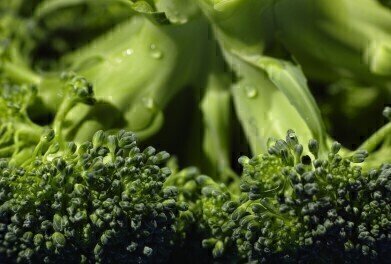News & Views
Is Broccoli the Secret to Anti-Ageing?
Nov 11 2016
Love it or hate it, there’s no denying that broccoli has serious health credentials. And now, a team of US scientists is claiming that the green vegetable could also be a secret weapon when it comes to reversing the ageing process. The Washington University researchers tested their theory on mice, and found that a compound found in broccoli has “remarkable anti-ageing effects.”
Reversing the ageing process
The naturally occurring compound, called NMN, had a myriad of beneficial effects on mature mice. Levels of physical activity increased, bone density strengthened, muscles improved, eye-sight recovered and both the immune system and the liver performed better. Following the incredible results, the team has started clinical tests on humans.
“We have shown a way to slow the physiologic decline that we see in ageing mice. This means older mice have metabolism and energy levels resembling that of younger mice,” comments lead researcher Professor Shin-ichiro Imai.
Playing with proteins
So what prompted the scientists to investigate the anti-ageing properties of broccoli? It all started with an interest in a compound called NAD (nicotinamide adenine dinulceotide), which contributes to energy production. As animals age they produce less NAD, which triggers the physical deterioration associated with ageing. After finding they couldn’t replicate NAD, the team experimented with other ways to boost its production. They looked to NMN, a compound found in broccoli, as well as other vegetables like avocadoes, cabbage and edamame.
When asked if broccoli and its fellow NMN rich vegetables double as anti-ageing elixirs, Shin-ichiro Imai was confident, commenting “The answer is basically yes. As a matter of fact, NMN has remarkable anti-ageing effects in mice.”
“Those NMN [fed] mice definitely have longer health-span – entire lifespan, we’re not sure, but if this keeps working in this way they could have a longer lifespan as well,” he adds.
Interestingly, the effects were only evident in older mice. When NMN was given to healthy young mice the supplement was dormant, as juveniles already produce enough NMN of their own. Clinical human trials are already underway in Japan, with the team confident that results will be similar. As human cells rely on the same energy production system, a broccoli rich diet could emerge as the next big anti-ageing trend.
The cancer catch
Of course, like most big scientific revelations there tends to be a catch. As well as reversing the ageing process, NAD could also boost the production of cancer cells. Some tumours are ultra-efficient at synthesising NAD, which means that increasing the body’s NMN count could increase the risk of cancer.
That said, with new research continually emerging, finding a cure for cancer could be closer than originally thought. For more information on the latest advancements, ‘Nanomedical Cancer Innovations’ explores the potential of the rapidly emerging field, and how nanomedicine has been dubbed the ‘Industrial Revolution’ in terms of the impact it’s expected to have.
Digital Edition
LMUK 49.7 Nov 2024
November 2024
News - Research & Events News - News & Views Articles - They’re burning the labs... Spotlight Features - Incubators, Freezers & Cooling Equipment - Pumps, Valves & Liquid Hand...
View all digital editions
Events
Nov 18 2024 Shanghai, China
Nov 20 2024 Karachi, Pakistan
Nov 27 2024 Istanbul, Turkey
Jan 22 2025 Tokyo, Japan
Jan 22 2025 Birmingham, UK




.jpg)














